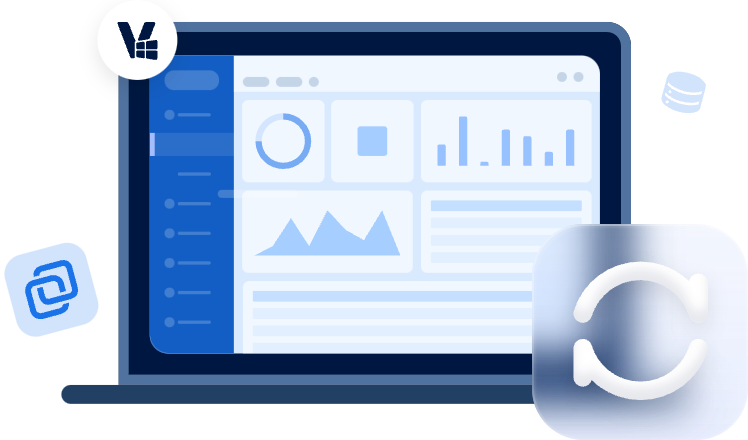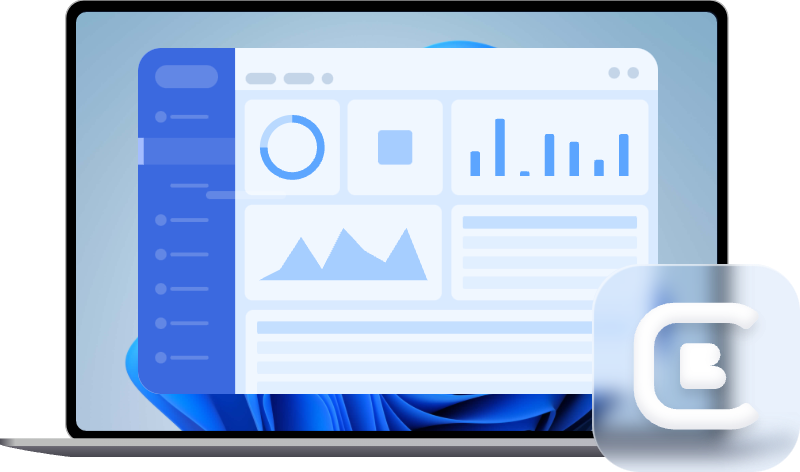Quick Comparison: Pros and Cons of Tape VS Disk Backup
Backup is one of the data security solutions for enterprises. The two most common forms of data storage are tape backup and disk backup. How to choose the right backup storage media for your business? You will find the answer in this article.
Tape vs Disk Backup
Tape and disk are the main media for data backup, and they are different from each other in usage:
Tape backup is moving data from hard drive to tape cartridge for long-term archiving or data recovery in the event of computer corruption. LTO (Linear Tape-Open) is a standard for magnetic data tape. The copied data is written to tape sequentially, one file after another, and access is also sequential.
Disk backup (disk-based backup) refers to backing up data to hard disk storage unit for disaster recovery (DR) in a large enterprise.
Tape vs Disk Backup Pros and Cons
After understanding the basic concepts of tape backup and disk backup, we will go through the pros and cons of tape and disk backup solutions to help you choose the suitable data storage. You can refer to these advantages and disadvantages to better meet your business data storage requirements and protect your information.
✤ Benefits of tape backup:
1. Low storage costs. Tape backup costs lower price per TB and it doesn’t require additional costs on maintenance, electricity, cooling.
2. Stability. Less sensitive to mechanical damage thanks to no permanently spinning parts.
3. Long-term archiving and off-site storage. For some information (e-mail, documents, financial records, patient medical records, etc) that needs to be retained permanently, tape is more secure than disk and is easier to transport offsite.
4. Scaling a tape backup system is simple, which only requires to add more tape cartridges.
✤ Disadvantages of tape backup:
1. Require a special drive or tape library.
2. Not suitable for regular backups, reuse of tapes can be easily damaged.
3. Requires special drives or tape libraries.
4. Data recovery will take longer. If you store data on offsite disks, performing data recovery will take more time.
These drawbacks can be effectively fixed by using effective backup software which helps you to perform data backup better.
◆Benefits of disk backup
1. Low initial cost. The initial cost of a tape drive and tape media setup is often more expensive than an equivalent disk-based backup.
2. Direct access to data. Tape backup is to store data sequentially. However, disk backup offers you random access to data storage.
3. Fast recovery. Disk backup eliminates the time it takes to mount a tape, search for the correct position and locate the data you want to restore. You can look up specific files from the disk system for quick disaster recovery.
4. Using additional technology (RAID, NAS) can be conglomerated to large capacities and achieve high throughput.
5. Tape-like solutions are available. Some disk-based cartridge solutions offer the benefits of disk backup as well as the portability and media rotation of tape backup such as Iomega’s REV drive and Tandberg’s rdx Quikstor drive.
◆Disadvantages of disk backup
1. Energy cost intensive.
2. Space cost intensive, relatively large storage capacity per TB.
3. High maintenance costs. Because the disk is always on, the lifecycle is relatively short and requires additional costs on electricity, cooling, maintenance.
4. Hardware unavailability after updating.
5. Instability for long-term data storage. The disk may fail to start, which leads to data loss.
After learning the tape vs disk backup pros and cons, you may be able to make your own choice, or combine them to build a backup strategy.
Create Reliable Disk Backups for Data protection
According to the 3-2-1 backup rule, it is better to store data in different locations. Besides disk and tape, backing up data to network location is also a good choice since the stored data can be access without inserting portable devices, and unaffected by disk failures.
AOMEI Cyber Backup can back up your disk to an external drive or network share or NAS centrally, and manage the backup tasks from a central console. It’s especially suitable for enterprise or company that has multiple computers to maintain.
AOMEI Cyber Backup offers a powerful solution for physical and virtual machines backup. It allows you to create File Backup, System Backup, Disk Backup, Partition Backup easily within the following features.
Network backup: Centrally backing up all computers to network share or NAS to greatly reduce local disaster, such as, server crashes, hard disk failure, virus attack etc.
Flexible backup strategy: Full backup for the entire computer and different incremental/differential backup to resiliently tracking the changed data, which saves storage and protect data comprehensively.
Centralized management: It enables you to create, monitor, edit, delete, execute backup tasks centrally, or restore data from it directly.
Automate backup: Schedule backup tasks to perform data protection automatically without any human errors or interruption.
Fast recovery: In the event of computer crash or failure, you can easily restore the machine to its previous state without any complicated configuration.
Backup Your Windows Disks using AOMEI Cyber Backup
1. Click Backup Task on the left menu bar, then click Create New Task to start create database backup task.
2. Access to Source Device >> Add Windows Device, then fill in the correct IP address and user information.
3. Go to Backup Task >> Create New Task Disk Backup.
4. Choose a destination to save the backup.
5. Schedule backup method as full / incremental / differential backup and run the backup tasks at daily / weekly / monthly.
6. Click Start Backup to protect your Windows 10 disks. Reliable disk backups ensure data recovery in case of hardware failures, accidental deletion, or data corruption, preserving the integrity and availability of important information.
✌ While the Free Edition covers most of the Windows backup needs, you can also upgrade to enjoy:
✦ Backup Cleanup: Configure retention policy to auto delete the old backup files and save storage space.
✦ Restore to New Location: Easily make a clone of your partition in the same or another computer, without reinstalling or configuring a new partition.
Summary
This article introduces tape vs disk backup pros and cons. After understanding them, you can choose the right backup storage media more correctly. Also, tape backup and disk backup are not opposed to each other, they can be combined for better data protection depending on your business requirements.
In addition, cloud backup is also a popular backup method as long as there is a strong Internet connection.






